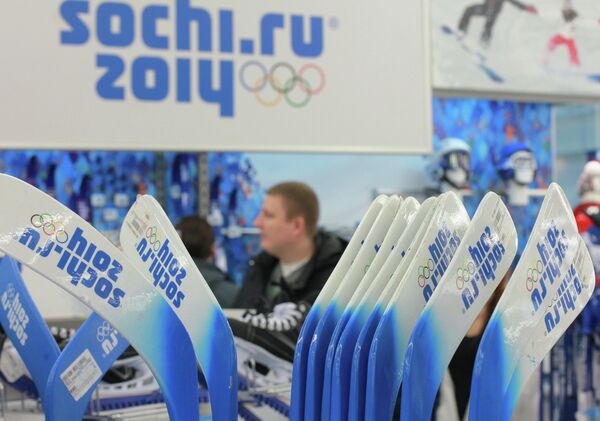MOSCOW, August 12 (R-Sport) – Two-time Olympic 400-meter hurdles champion Edwin Moses on Monday slammed calls for the United States to boycott an Olympic Games in Russia for a second time.
“There won't be a boycott, because there isn't any socialism happening in Russia,” said the American, who joins the growing ranks of those rejecting a boycott of the Sochi 2014 Olympics in protest of Russia's controversial anti-gay laws.
“There have been politicians in the United States that at the end of the day made fools of themselves even talking about it. There is no way the United States will boycott, because it would be really stupid.”
He dismissed the proposed boycott by gay rights activists, celebrities and some politicians as a temporarily hot issue that will likely disappear in a few weeks.
Moses' comments came on the sidelines of the world athletics championships, which are running at Moscow's Luzhniki's stadium this week. Moses was the defending Olympic champion in the 400-meter hurdles when the US boycotted the 1980 Olympics in Moscow in protest of the Soviet invasion of Afghanistan.
Moses, now 57, lamented the missed opportunity to win another Olympic gold, stating that he “was in best shape of his life." But there was a silver lining, he said, as the boycott pushed track-and-field athletes to turn professional and seek private funding.
“The fact that we didn't come to Moscow was a big incentive to legalize athletes to be able to take money from trust funds and all that,” Moses said. “So that was something good that came out of it.”
Last week, IAAF vice president Seb Coe also spoke against of the boycott in the wake of an appeal made by British TV star Stephen Fry to Prime Minister David Cameron to lead an "absolute ban" of the Games, comparing the anti-gay legislation to Hitler's persecution of the Jews.
Cameron noted that he was "deeply concerned" about the "abuse of gay people in Russia" but insisted that a boycott of the event was the wrong way to tackle the issue. US President Barack Obama has also spoken out against the idea of an Olympic boycott.
In June, Russian President Vladimir Putin signed a law banning the promotion of “non-traditional sexual relations” toward minors. The legislation's vague wording may enable individuals to be implicated for even telling children that gay people exist. Violators face fines of up to $30,000 and foreigners face deportation. There has been confusion over how strictly Russia will enforce the law during the February 7-21 Olympics.
The International Olympic Committee has requested clarification after assurances from Russian Olympics supervisor Dmitry Kozak that athletes and visitors won't be affected were brought into question by Sports Minister Vitaly Mutko. An athlete found to be “propagandizing” gay relationships in Sochi will be “held accountable,” Mutko said earlier this month.

